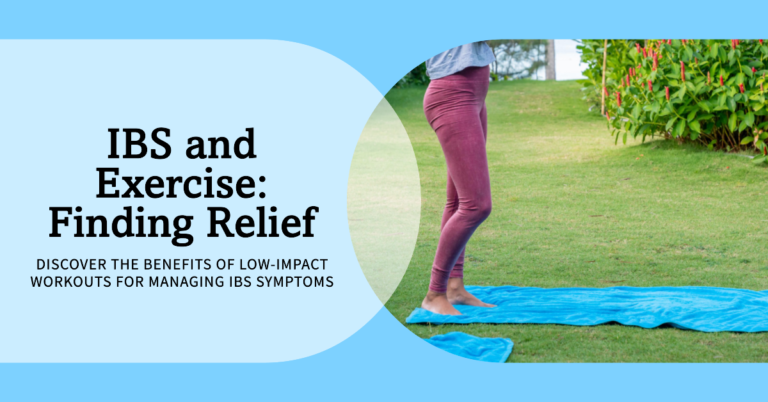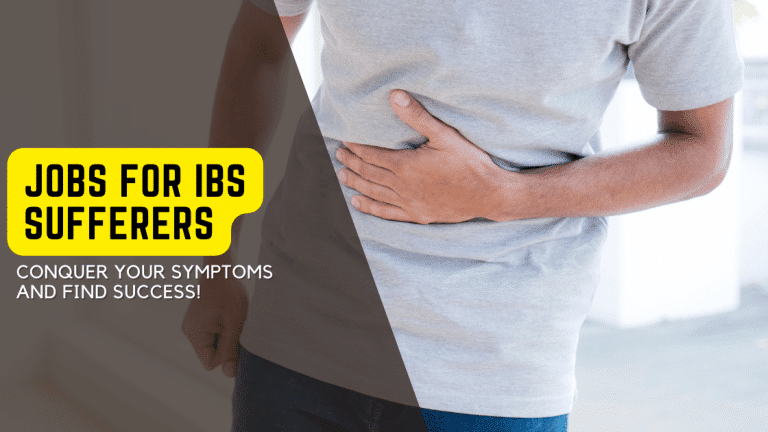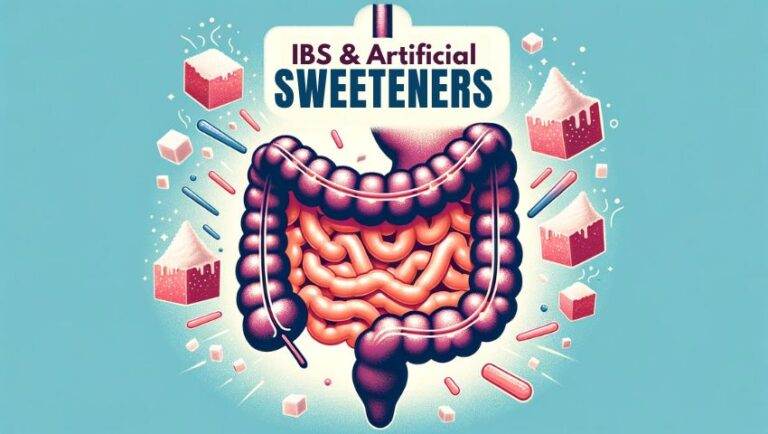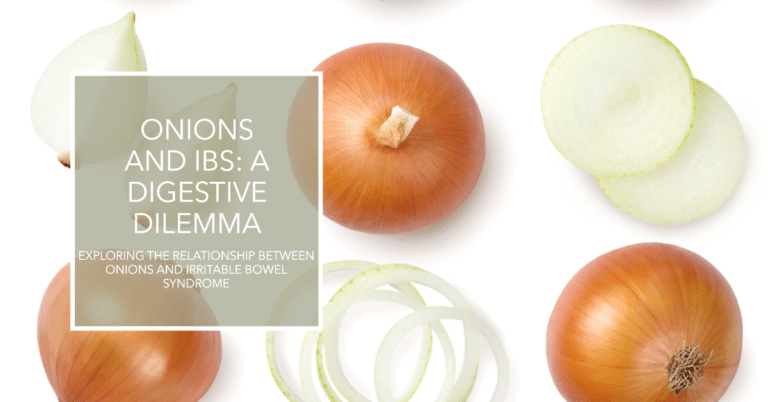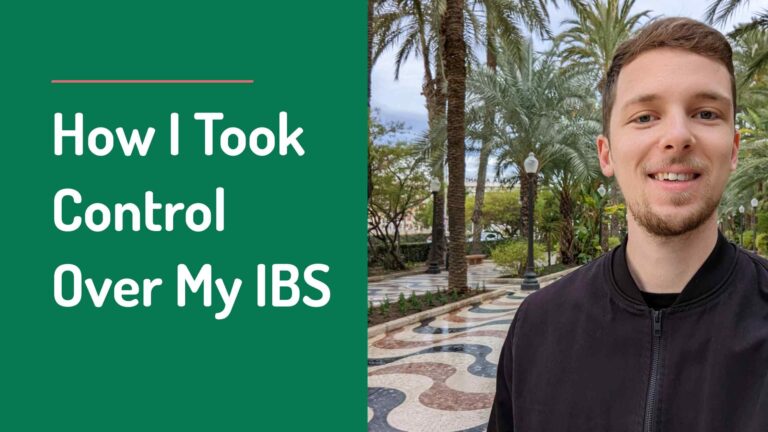What Are IBS Trigger Foods? – Achieving Digestive Peace Made Simple!
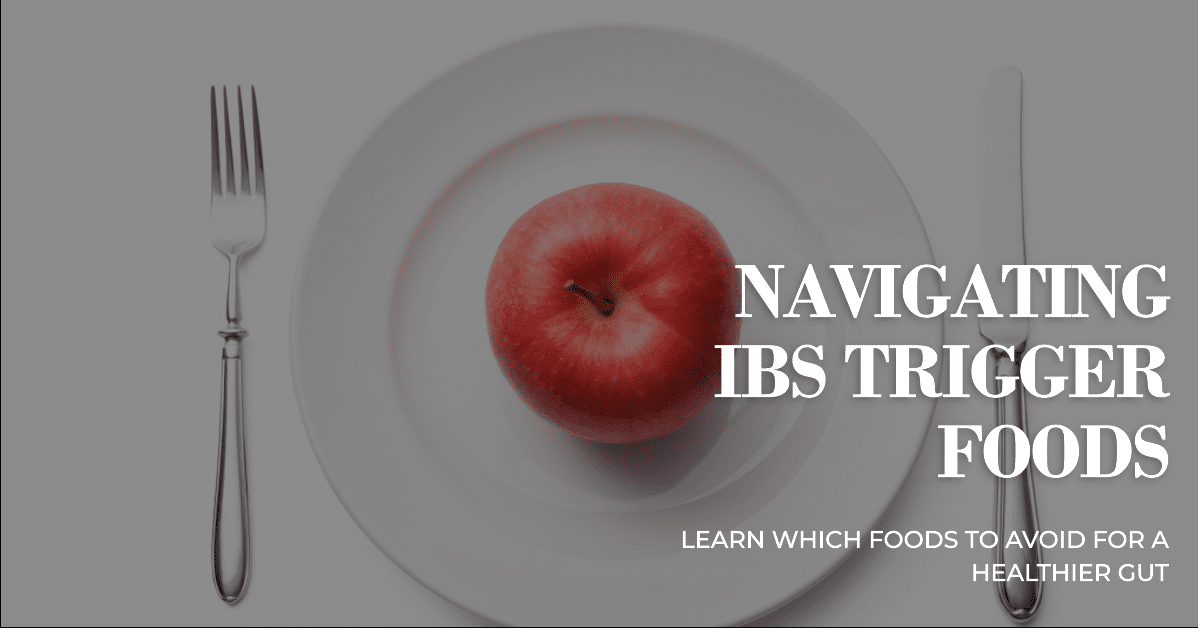
Are battles with bloat, diarrhea, and constipation making your day a wreck? The culprit might be on your plate – and it’s well worth learning more about what are IBS trigger foods!
IBS trigger foods, like caffeinated drinks and high-FODMAP options like apples and dairy products can turn your gut into a warzone.
Luckily, you can pacify it by knowing which foods to avoid at all costs and which foods are safe to consume.
Want to know how? Keep reading!
Unveiling the Mystery: What Does IBS Even Mean?
You’re here, so I bet you’ve heard of IBS. It’s more than just a fussy tummy—it’s Irritable Bowel Syndrome. Yeah, it’s got a name, and it’s all about messing with your digestive system.
Knowing what IBS is helps you understand why some foods make you feel like you’re carrying a rock in your belly.
For many people with IBS, the relationship with food is a complicated dance. A misstep—like downing that ice-cold milkshake—can send you twirling into cramps and discomfort.
Your gut has opinions, and some foods can really grind its gears.
Your Gut is Talking, Are You Listening? The Connection Between Food and IBS
If your tummy could talk, it would give you an earful about what you eat. Certain foods can cause bloating, abdominal pain, and make IBS symptoms worse. You can’t just ignore these signs; your gut’s trying to tell you something.
Let’s dive into the science a smidge. Foods that contain stuff like lactose or sorbitol can make you bloat and lead to diarrhea.
On the flip side, a diet low in soluble fiber can cause constipation. Your small intestine is a sensitive place, and these trigger foods can make it act all sorts of crazy.
The Usual Suspects: Common Foods That Wreak Havoc
Don’t want to play the guessing game? No problem.
Let’s lay down a list of foods known for their notorious gut-wrenching roles.
| Food Item | Why It’s a Trigger | Alternative |
|---|---|---|
| Dairy | Lactose | Lactose-free milk |
| Broccoli | Causes Gas | Zucchini |
| Fried Foods | Causes Diarrhea | Baked alternatives |
| Artificial Sweeteners | Sorbitol | Stevia |
| Caffeinated Drinks | Aggravates IBS Symptoms | Herbal teas |
Dairy is a biggie for many IBS sufferers as foods in this category contain lactose – a type of FODMAP that can trigger IBS symptoms in some [1].
Lactose intolerance can cause you to feel bloated and worsen IBS in many cases. Then there are cruciferous vegetables like broccoli and cauliflower.
They’re good for you but can cause gas and make IBS symptoms worse. And don’t get me started on fried foods and caffeine!
They’re like the Joker and Penguin of the IBS world—no good comes from them.
The Elimination Game: Finding Your Personal IBS Villains
You can’t slap a “Bad for IBS” label on every piece of food that crosses your path. It’s personal.
An elimination diet can be your Sherlock Holmes, helping you pinpoint the exact trigger foods linked to your IBS flare-ups.
First, you’ll need to get rid of the usual suspects from your diet—yup, I’m talking about foods like dairy and high-fat meals.
Then, reintroduce them one by one and note any digestive upheaval. Foods that cause gas, diarrhea, or bloat are your culprits.
List of Foods to Start With:
- Dairy
- Wheat
- Processed Foods
- Cruciferous Vegetables
- Artificial Sweeteners
Your Personal Food Diary: The Ultimate Gut Whisperer
Remember when you used to keep a diary about your crush? Now’s the time to have a diary for your tummy. It’s not just about what foods you eat; it’s also about when and what you’re feeling at the time.
Stress and hormones can also be secret IBS trigger agents. So, scribble down your meals and moods; you’ll be amazed at the patterns that reveal themselves.
Typical Food Diary Entry:
- Breakfast: Oat cereal (soluble fiber—good!)
- Lunch: Caesar salad (watch out for the dressing)
- Dinner: Pizza (hello, trigger foods!)
- Mood: Stressed due to work deadlines
- Symptoms: Mild bloat after dinner
Recording what you eat, and how it makes you feel, is your ace in the hole for keeping IBS in check. You can spot trends and identify foods that may make IBS symptoms worse.
But don’t rely solely on your diary; get your healthcare provider in the loop, especially when making lifestyle changes.
Don’t Just Take My Word: Professional Help & Support
Self-diagnosis is handy, but it’s not the be-all and end-all. Consult a healthcare provider for tailored advice on which foods to eat.
They can provide insights into what foods can improve your IBS or even suggest tests to rule out other conditions.
A low FODMAP diet is often recommended and can be a game-changer for IBS sufferers.
But don’t go it alone – always speak with a qualified dietician who can point you in the right direction with expert advice.
Go Beyond Food: Other Ways to Keep IBS at Bay
Okay, let’s get one thing straight. There’s no cure for IBS, but managing it is within your reach. Sure, avoiding IBS trigger foods is important, but don’t ignore other aspects like stress management and exercise.
Believe it or not, your mental state can aggravate IBS symptoms. Exercise can help in managing stress, and bonus—it aids in digestion!
Lifestyle Changes for a Happy Gut:
- Regular exercise
- Stress management techniques (like meditation)
- Balanced sleep schedule
- Staying hydrated
Learn more about IBS self care in my complete guide.
Wrapping it Up: Your Path to a Happier, Calmer Gut
You have more control over your IBS than you might think. Arm yourself with the right information, and you can eat your way to a happier gut.
Your body is your own personal science experiment, so be the researcher you were born to be.
If you’re keen on diving deeper into what can make your IBS flare-up, look at my guide on What Helps an IBS Flare-Up.
So, what’s it gonna be? Fork in hand, are you ready to reclaim your gut?
Disclaimer: This content is based on my personal experience as an individual diagnosed with celiac disease and IBS (Irritable Bowel Syndrome) who follows a strict gluten-free diet. This does not constitute medical advice. Please consult a medical professional, nutritionist, or qualified dietitian for personalized, professional advice.

